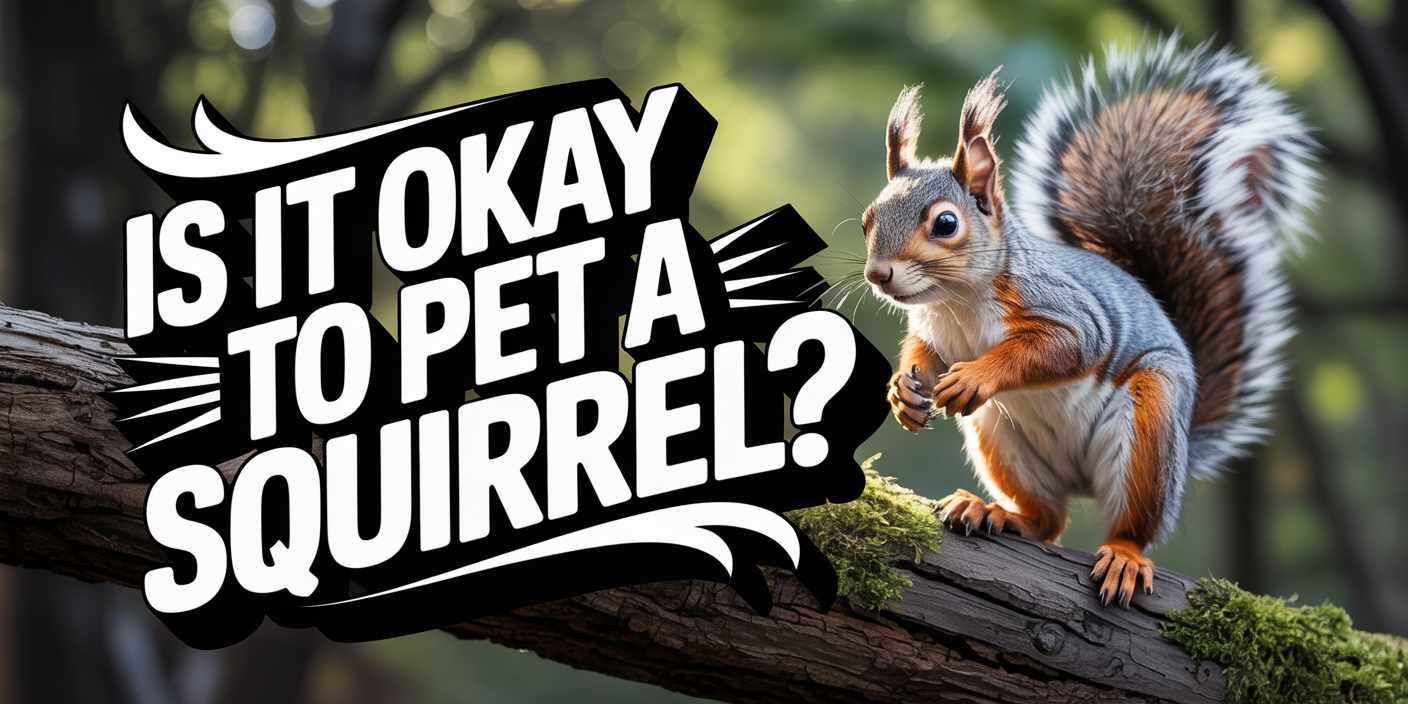“No, it is not okay to pet a squirrel, wild squirrels can bite, scratch, and carry diseases that pose serious health risks. They’re not domesticated animals and should never be handled by the public“
Squirrels may look cute and harmless, especially when they’re nibbling on acorns or darting through the trees in your backyard. But here on the Treasure Coast, these little creatures can pose serious risks. Getting too close, let alone trying to pet one, can result in painful bites, the spread of diseases, and even legal trouble.
It’s important to remember that while they may seem friendly, squirrels are wild animals, and handling them can lead to unforeseen consequences. At AAAC Wildlife Removal, we specialize in squirrel control to safely handle any infestations around your property.
Rather than approaching or interacting with these creatures, trust the experts to remove them and secure your home from future intrusions. Our professional squirrel control services are designed to keep your home safe from damage and protect you from the potential dangers of these unpredictable visitors.
Learn more: What do squirrels eat?
Is It Okay to Pet a Squirrel?
Short Answer – No, It’s Not Safe
Wild squirrels may seem approachable, but they’re still unpredictable animals with sharp claws and teeth. Trying to pet one can result in bites or scratches, which may lead to infections or exposure to diseases like leptospirosis, salmonella, and tularemia.
Even if a squirrel appears calm, sudden movements or fear responses can trigger defensive behavior. Unlike domesticated pets, squirrels haven’t been socialized to safely interact with humans.
In Treasure Coast areas like Vero Beach or Port St. Lucie, residents often see squirrels in parks and backyards, but that doesn’t make them tame. These animals carry fleas, mites, and other parasites that can transfer to people or pets, making any contact a health hazard.
Why People Want to Pet Them Anyway?
Squirrels are undeniably cute; their big eyes, bushy tails, and playful nature make them look harmless and even friendly. It’s no surprise people, especially kids, feel tempted to approach or feed them in places like Riverside Park or neighborhood yards across Treasure Coast.
Social media has only added to the charm, with viral videos showing squirrels eating from human hands or snuggling in someone’s palm. The problem is, those videos rarely show the risk behind the scenes.
Wild squirrels may tolerate human presence for food, but they don’t suddenly become safe to touch. Encouraging close contact can lead to bolder behavior from squirrels, which often results in them entering homes, damaging property, or worse, biting the very people who tried to befriend them.
Are There Legal Risks to Touching Wildlife in Florida?
Florida has strict regulations in place to protect native wildlife, including squirrels. Under Florida Fish and Wildlife Conservation Commission (FWC) rules, it’s illegal to keep, trap, or handle certain wild animals, including squirrels, without proper licensing or permits.
That means even well-meaning interactions, like trying to rescue or tame a squirrel, can land you in legal trouble. Handling wildlife without training can lead to fines or citations, and worse, it can put the animal at risk.
Squirrels that are removed from their natural habitat or exposed to human environments may struggle to survive if released later. In the Treasure Coast, it’s always safest, and smartest, to leave squirrel encounters to licensed professionals like AAAC Wildlife Removal.
What Happens When People Feed or Tame Squirrels?
Behavioral Changes That Lead to Trouble
When squirrels are regularly fed by humans, they begin to associate people with food, and that changes their behavior in ways that aren’t cute. They lose their natural fear of humans, become more aggressive when food isn’t offered, and may try to enter homes, garages, or sheds in search of snacks.
What starts as an innocent handout can quickly turn into unwanted visits and dangerous encounters. This kind of behavioral shift often leads to biting incidents or property damage, especially when squirrels start defending “their” feeding spot.
Tamed squirrels may claw furniture, tear insulation, or even chew through walls once they find a cozy place indoors. These changes make it harder to remove them humanely and create long-term problems for homeowners.
Real Problems in Treasure Coast Neighborhoods
Across the Treasure Coast, from Jensen Beach to Fort Pierce, squirrel intrusions are a growing concern, especially in neighborhoods with mature trees and outdoor feeding areas. Residents who leave bird feeders or pet food outside often notice squirrels becoming more persistent and bold.
Eventually, these squirrels start nesting in attics, chewing wires, and leaving behind droppings that pose health risks. AAAC Wildlife Removal frequently handles cases where feeding or taming attempts led to squirrel infestations. Once a squirrel sees your home as a reliable food source, they won’t leave on their own. That’s why prevention and professional removal are key to avoiding repeat visits and costly repairs.
Pro Tip – Love Wildlife from a Distance
It’s totally fine to enjoy watching squirrels scamper around your yard, but the safest approach is to admire them without interacting. Feeding, petting, or trying to tame a wild squirrel not only puts you at risk, it also disrupts their natural behavior and increases the chance of future conflicts.
Keeping a respectful distance helps both you and the animal stay safe and stress-free. To discourage unwanted squirrel activity, use squirrel-proof bird feeders, trim back tree limbs near your roof, and secure trash bins tightly.
If one finds its way inside your attic or starts acting too bold around your property, don’t handle it yourself. Call AAAC Wildlife Removal of Treasure Coast to step in with safe, humane, and professional wildlife solutions.
The Safe Way to Handle Squirrels in Florida
While it might seem harmless or even sweet to try petting a squirrel, the risks far outweigh the reward. These wild animals can carry diseases, cause serious bites, and are protected under Florida law, making human interaction both unsafe and illegal in many cases.
For Treasure Coast residents, the best approach is to appreciate squirrels from afar and avoid any direct contact. If one gets too close for comfort, or finds a way into your attic, your safest move is to call the professionals at AAAC Wildlife Removal. We’re here to handle the wildlife, so you don’t have to.
Call AAAC Wildlife Removal of Treasure Coast Today!
If squirrels are getting too close, or have already made themselves at home in your attic, it’s time to take action. At AAAC Wildlife Removal of Treasure Coast, we specialize in safe, humane squirrel removal backed by expert training and years of local experience.
Don’t risk injury, legal trouble, or expensive property damage by trying to handle wildlife on your own. Call our team today for a free inspection and let us help you reclaim your space with effective, long-lasting solutions.




